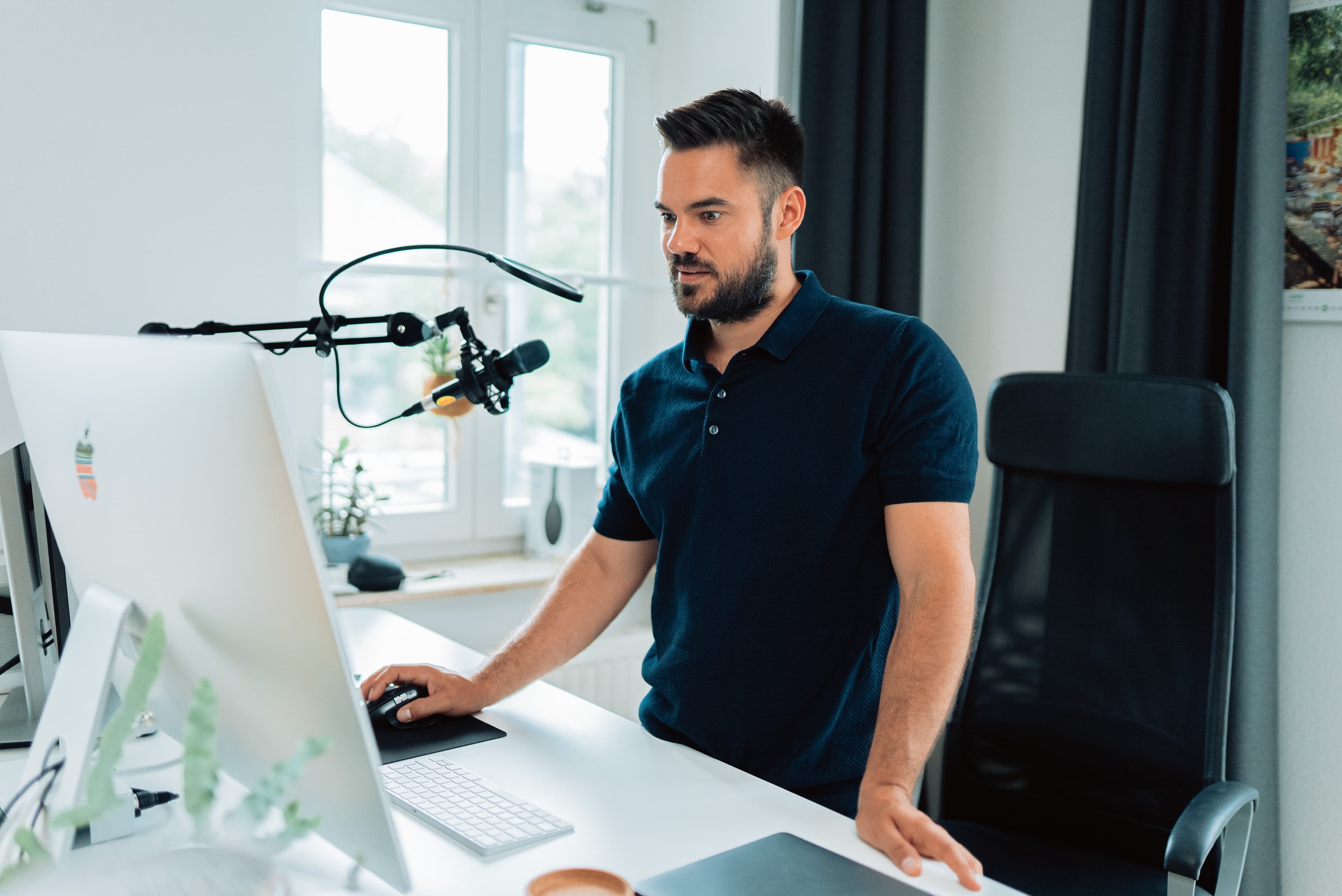Men's Mental Health Matters
15th Feb 2022

A guest blog feature by Marina Gask, copyrighter at Peppy.
This article was originally published on November 9th 2021 on the Peppy website.
Working men are less likely than women to see their GP for a health problem – in fact men visit their GP 50% less than women. In England, around one in eight men has a common mental health problem such as depression, anxiety, panic disorder or obsessive-compulsive disorder (OCD). For many, lockdowns and the pressures of working from home have exacerbated this problem.
Louis’ mental health story
“I feared my job was on the line, but my mental health was the real issue”
When Louis became angry during a Zoom meeting, his boss knew something was wrong. A mild-mannered junior exec at the marketing firm where he’d worked for nearly eight months, Louis had managed to fit in pretty well considering he’d been onboarded virtually during lockdown – this outburst was out of character. When his HR manager contacted him to discuss it, he became very defensive.
After the phone call he found himself in tears. “It wasn’t like me to react like this, and I knew it. But my mental health was in a bad way”.
Like vast swathes of the UK population, Louis’s career had been knocked off course by the global health pandemic. Having found his dream job as a junior exec in a marketing agency in October 2019, aged 21, he’d excitedly moved out of his parents’ home into a flat share with a friend. He loved the feeling of independence. But after the Covid pandemic hit in early 2020, things changed. Both young men having to work and live in a tiny flat became oppressive and within months Louis had lost his job, a casualty of the fragile economy. Money became very tight, and it was an anxious time.
Lockdown
In early 2021, Louis found new job. Being recruited and onboarded remotely was a strange experience and it was hard to engage fully without even being able to meet his colleagues. “What’s more, everyone at work knew each other and their clients. They were all really chummy and were used to socialising together. It was impossible to feel part of all this”.
Like for most people during lockdown, Louis’s job was conducted entirely online, and he lived and worked in his bedroom, day in day out. Eventually it started to affect his mental health and he became very bleak and negative.“I never went out unless I had to. I just didn’t see the point. But I also started having really negative thoughts. I felt everyone at work was judging me and that I wasn’t good enough. I struggled to manage my workload, and the thought of it made me panicky. But I couldn’t tell anyone.” Unable to sleep at night, he was exhausted during the day. “That’s when I started comfort eating and living on takeaways. I would buy whole packets of muffins and eat them all in one go. I knew it was bad for me, but I couldn’t stop”.
Asking for mental health support
Feeling depressed and bleak, Louis found he was anxious in team Zoom meetings. He couldn’t stop himself overthinking everything that was said. Having lost his previous job, Louis’s anxiety started spinning out of control. “In tears I told my mum how bad things were and she urged me to see a doctor. I didn’t think it was the kind of thing you went to a doctor for, but I agreed to tell my employer I was struggling”.
Working men are less likely than women to see their GP for a health problem – in fact men visit their GP 50% less than women. 12.5 % of men in the UK have experienced a mental health problem. Men are also more likely than women to display explosive anger, which is linked to hypertension and cardiovascular issues. Men like Louis are less likely to access psychological therapies than women: only 36% of referrals to NHS talking therapies are for men.
Peppy mental health support services
This is why Peppy has launched a new men’s health support service, Peppy Men. Peppy Men gives users access to men’s health experts at the touch of a button. This includes one-to-one chat or consultations, as well as a library men’s health resources (videos, quick tips, events, articles and more) that have been designed specifically for men.
After another chat with the HR manager, then an honest conversation with his line manager, Louis now gets more support at work, including regular catch-ups one-on-one. “Going into work every day since lockdown lifted has helped massively. Getting to know colleagues has taken the fear away and I’m much less anxious”. He now goes for daily bike rides and has also moved back home to be around his parents. This has helped him can get his mental health and diet back in balance.
“Talking to colleagues around my age, I realise I’m not the only one who’s been struggling. But I also know that if I feel that way again, I need to open up to someone and not be afraid to admit I need help,” says Louis.
Through Peppy Men, users can access personalised mental wellbeing support, video appointments and anonymous chat with men’s health practitioners. This is making health support for both mental and physical issues easily accessible to men who not be able to or not want to talk to their GP.

- Talk men’s language. Make sure the healthcare resources and support available to them through your organisation are designed with men in mind, rather than always written for a female audience.
- Offer discreet support. Rightly or wrongly, sometimes questions about health and wellbeing can be embarrassing. Give your employees access to professional support and practical advice that’s anonymous.
- Think about easy access. Statistically, men work longer hours than women, so are less likely to be able to visit a GP or even a pharmacy. Make it easy for them to get the information and support they need by offering a digital solution, like the Peppy app.
Want to learn how to make your workplace more inclusive?
Sign up for the Flexibility and Health Support online event on Thursday 17th Feb, 12pm GMT.